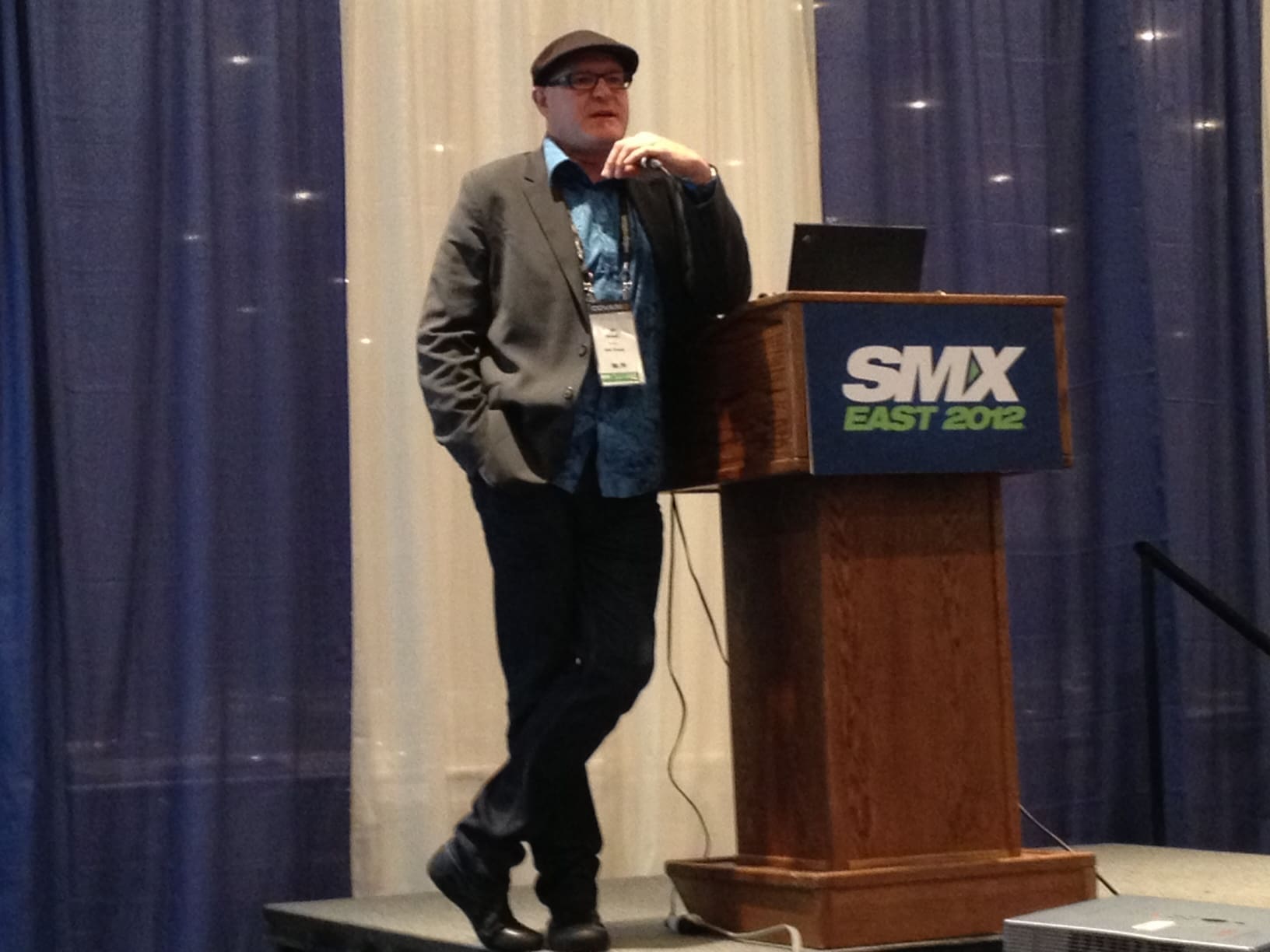
 Smx-east-2012-day-three-recap-searc...
Smx-east-2012-day-three-recap-searc... 
This is part three of a three-part series covering SMX (Search Marketing Expo) East 2012 at the Javits Center in Manhattan. Read part one here and part two here.
Perhaps my favourite line of SMX East 2012 came from a day three-panel discussion on where SEO is going in 2013. Alex Bennert, in-house SEO for the Wall Street Journal (and let me just say, what a cool job), was responding to a question on what things SEO’s will need to keep in mind going into next year, and the conversation was naturally drifting into the murky waters of social signals.
“Search engines are dying to replace links with social,” she said. “They’re just having a really hard time.”
To me, that really sums up where search marketing is and what 2013 will bring. The continuing transition to a post-link world of Search Engine Optimisation is part of search’s long, slow march into the mainstream of strategic marketing. The search engines (Google in particular) know that links are not the answer anymore. That’s what has spurred things like the Penguin update. In this same panel discussion, Search Engine Land’s Danny Sullivan asked Bing’s Senior Product Manager Duane Forrester if links were still the most important signal. The answer was a pretty flat “no.” That’s Bing, of course. No one from Google was on this particular panel, but their answers have been trending that way as well (Amit Singhal and Matt Cutts love to talk about the 200+ different ranking factors that go into Google’s algorithm).
So search is in a bit of a strange transition phase, like an NFL franchise that knows its ageing quarterback is past his prime, but the rookie from last year’s draft isn’t quite ready for prime time. Links are a sign of what has been wrong (and exploited) with search for a while (although they’re still important and can be legitimately earned), and social signals are the promise of search experience that better understands user intent.
So what do we do while this transition is happening? Forrester told the audience that SEO’s need to stop calling themselves SEO’s. There needs to be something of a rebranding from SEO’s and PPC’s to something more like search marketers. It’s not about some tips and tricks having to do with SEO and links coupled with some paid ads that drive a little incremental traffic; it’s about a comprehensive search marketing strategy that, when executed properly, can have a meaningful impact on any business. The expanding reach and possibilities of search are bringing search folks from the basement to the boardroom, and the largest companies in the world are devoting serious resources to strategic search marketing efforts. Bank of America’s Senior Vice President of SEO Scott Gardner was also on the panel. That’s right. Bank of America has a Senior Vice President of SEO.
Why? Because their eyes have been opened to the business-driving possibilities of search. As I outlined in yesterday’s recap, mobile is expanding the pie and creating net new touch points with consumers. There are opportunities to reach customers that simply did not exist just a few years ago, and this goes beyond tablets and smartphones. Search (or at least behaviour very much like it) is happening within videogame consoles, cars, and even devices like refrigerators.
The really good search marketer’s job has become an elegant mix of micro-managed detail and creatively designed flawlessly delivered user experiences. When done right, a search campaign can get in front of the right people at the right time on the right device looking for the right things with the right messaging tens and even hundreds of thousands of different ways day in and day out. As I wrote yesterday, Google calls this Winning the Moments that Matter, and it’s about prevailing in the thousands of tiny battles that win the war.
As DAC’s President of Digital Ken Dobell is fond of saying, “all of this is starting to sound suspiciously like marketing”. As someone who has been doing search marketing for a while, that’s really exciting to me. Today, we have the opportunity to build bigger, more strategic, integrated programs that get the attention of the people most interested in achieving business outcomes.
The theme that search marketing has grown up and become an accepted, legitimate marketing channel was woven through just about every session at this year’s SMX East. My guess is that at next year’s conference it won’t even come up, because it will go without saying.
Interested in finding out more? Contact DAC today!
